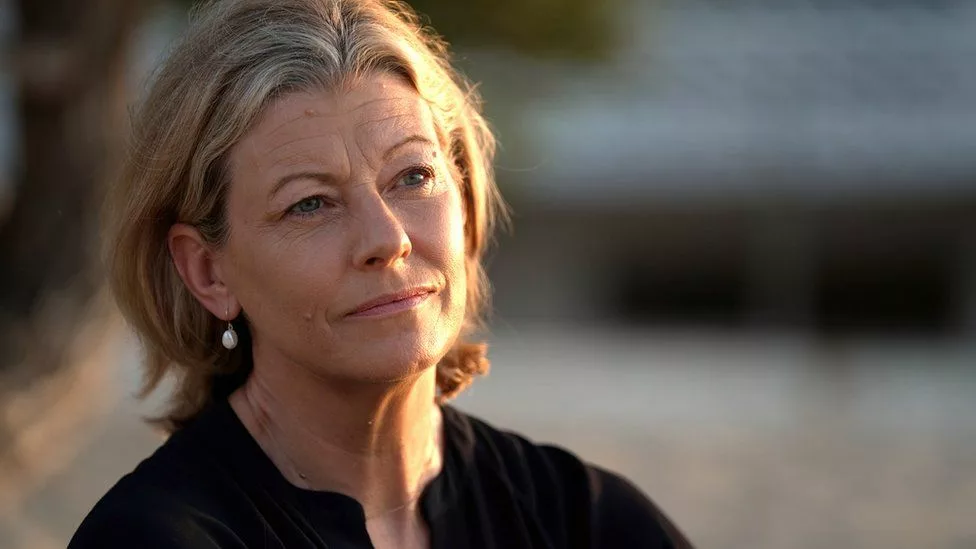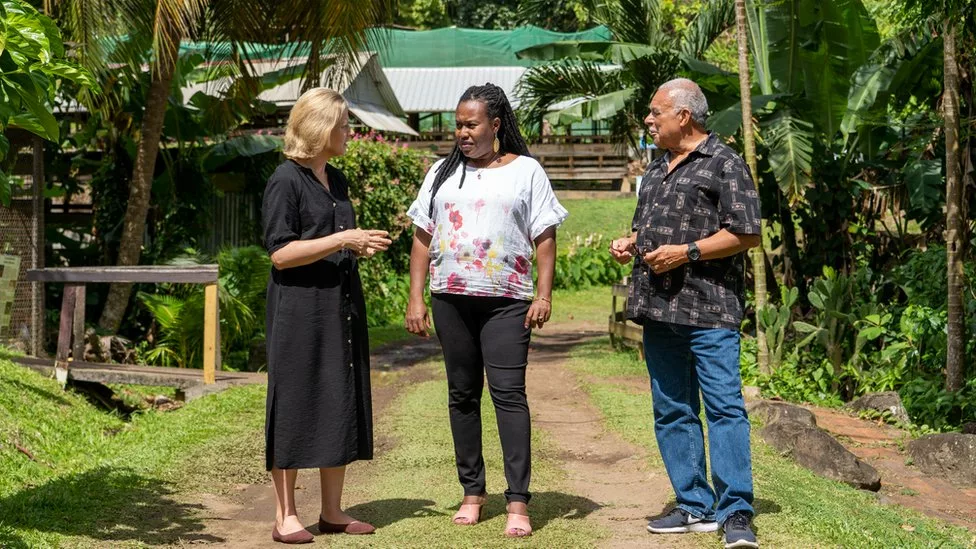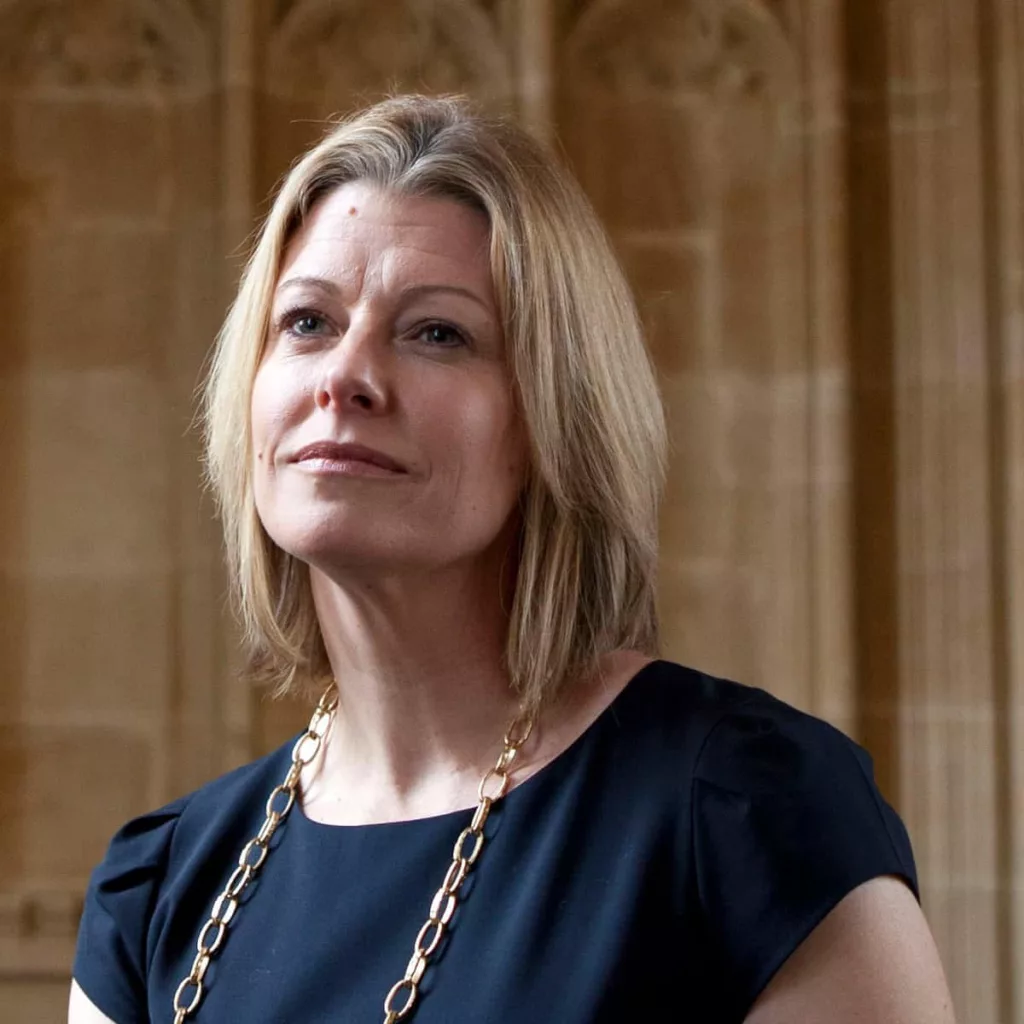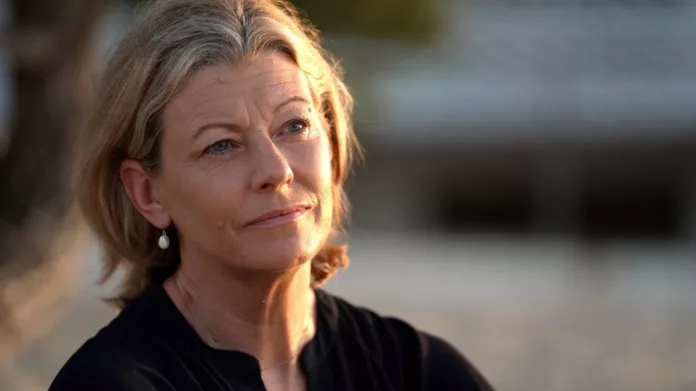Laura Trevelyan speaks exclusively to Observer Radio
By Orville Williams
In an exclusive interview on Observer Radio’s Voice of the People (VOP) programme yesterday – her first in the region since quitting the BBC to campaign for Caribbean slavery reparations – Laura Trevelyan insisted that Britain must own up to its past deeds and revealed she is prepared to act as a bridge to that end.
Laura last worked as a correspondent with the BBC, where she spent a whopping 30 years before announcing last week that she was leaving the broadcaster to “join the growing movement for reparatory justice for the Caribbean”.
That announcement came weeks after Laura and members of her family travelled to Grenada, where they publicly apologised for their ownership of more than 1,000 enslaved Africans and pledged £100,000 (US$120,000) in reparations.
Present during the public apology was Chairman of the Caricom Reparations Commission (CRC), Sir Hilary Beckles, who Laura revealed had urged her to take the plunge and join the longstanding fight for reparations.

“Sir Hilary Beckles encouraged me to think of myself as having the ability to be a bridge between the Caribbean and Britain. If I can in any way fulfil this great honour and if I can in any way – with my perspective as a descendant of slave owners – forward the cause of reparatory justice for the Caribbean, then I will feel that this is the most important work that I could do,” she said yesterday.
It’s an unshakable feeling among many, including pan-Africanists here in Antigua and Barbuda, that, over the past few years, there has been a shift in global consciousness where colonial history, slavery and reparations are concerned.
This feeling was strengthened by the passing of the long-reigning Queen Elizabeth II last year, and has also been furthered – particularly within the Caribbean – by Barbados’ decision to cut ties with the monarchy and become a republic.
The indication from a growing number of other Caribbean countries, including the twin island nation, that they will look to follow suit has certainly intensified matters.
“This is a moment of reckoning,” Laura told Observer, referring to the widespread reaction to the killing of George Floyd in the US back in 2020.
However, the shift only appears to be taking place among those who were oppressed, with many oppressors and descendants of oppressors still refusing to acknowledge their colonial past and/or contribute appropriately to the idea of reparations.
The Trevelyans though, are breaking the mould.
According to reports, the family owned six sugar plantations on the Spice Island – as Grenada is affectionately called – and received the equivalent of £3 million in compensation as part of the abolition of slavery.
Sir Hilary has also reportedly referred to their ancestors as some of the leading architects in the oppression of Africans via the slave trade.

For these reasons, the Trevelyans – mostly Laura herself as the family’s de facto spokesperson – have been commended for their attempts to ‘make things right’ by acknowledging, apologising and paying up, but Laura doesn’t think they deserve any thanks.
“I don’t feel that anyone should be thanking us. The Trevelyans benefitted from enslaved labour in Grenada and it’s a strange position to find yourself in, when people thank you for coming forward to be honest about this legacy,” she explained.
She shared that when the discussions about apologising and paying reparations first started, family members like herself – who were in support of making that decision – got a lot of pushback.
“Quite a lot of people felt, philosophically, you cannot apologise for something you didn’t do…[and also that] there’s a real danger in reparations,” she recalled.
“This is a can of worms; what if people from the Caribbean turn up and say we want your house?” were some of the concerns apparently voiced.
After inviting Sir Hilary to a Zoom meeting with Trevelyan family members, Laura went on, he persuaded many of the pessimists, pointing out their family’s direct connection to Caribbean history.
A big part of that Caribbean history is the fact that, unlike aristocratic slave-owning families, the majority of descendants of enslaved people cannot trace their lineage, as no proper recording was done for slave families.
The history also includes a story that as a young boy, Sir Hilary – on account of his family’s lack of resources – went to school with sugar as lunch. “And we wonder why there’s an epidemic of obesity, diabetes and hypertension in the Caribbean,” Laura remarked.
“This was the really incredible bit…he said you’re part of the history of the Caribbean too, you’re Caribbean people and if you come here, you’ll be welcomed.
“[That], I think, assuages a lot of the fear that family members had that, somehow, they would be met by angry people, baying for money and [thinking that] this was all a terrible idea.”
This persuasion from Sir Hilary led to last month’s public apology and reparations pledge in Grenada. “[He] was right, everything that he said was right,” Laura said.

Her journey to this point sped up last year, when she journeyed to Grenada in her role with the BBC, in a documentary film that “explores her family’s connection to the slave trade” in the country, according to the BBC’s Media Centre.
In the film, Laura and her producer, Koralie Barrau, travel to Grenada, visit former plantations, and learn about how slaves were badly treated, among other emotional lessons.
That sort of foray has now come to an end with Laura’s departure from the BBC, but she believes her three decades with the broadcaster have prepared her for this next step.
“[I appreciate] the privilege that the BBC gave me to [go] to Grenada, to explore the complex past of my ancestors, to meet people from Grenada’s Reparations Commission…to meet the descendants of those who could have been owned by my family.
“I guess I have been trained over 30 years to speak truth to power and that includes confronting yourself…I think that 30 years of being forced to be bold, maybe I’m taking that arrogance with me as I leave the BBC,” she explained.
Her transition from the revered media institution is being aided by support from her former colleagues, especially Black and South Asian Britons, but also from her fellow white Britons.
“I didn’t really get any pushback at all, I just got ‘gosh, that’s unexpected, but we’ve been watching [and] we can see your journey’.
“I’ve been really so struck by the reaction among Black colleagues of Caribbean descent in London who have particularly cheered me on. Various of them are asking me to come on radio shows that they host for the diaspora which I didn’t even know existed.”
Laura revealed during the interview that she has been approached by some British families, mostly with interests in Barbados and Jamaica, for advice on reparations, having admitted to be struggling with determining the first steps.
What she has advised them, she also revealed, is to start with the reparations commissions and committees established in the various islands, and to share how her family’s experience has played out.
The consensus in her advice, she said, is that families should not be afraid to just confront their past.
That too is what she hopes the British government will do, instead of trying to avoid the conversation.
“First of all, it’s very British to sweep things under the rug; it’s peculiarly British. Secondly, slavery didn’t happen in Britain, it happened offshore, so it’s not like in the United States where people were enslaved on cotton plantations and in people’s homes.
“[But] I think there’s just such an obvious case to be made here – Britain’s current economic wealth was built from the slave trade. The industrial revolution was fuelled by the profits from the slave trade [and] the Caribbean was left with literally nothing.
“Like it or not, Britain’s wealth was built on the legacy of slavery and it’s only now that Britain is talking about this, so I hope it’s a conversation I can contribute to,” Laura said.
The Trevelyans’ £100,000 donation is meant to contribute to the establishment of the Reparations Research Fund at the University of the West Indies (UWI), which will look into the economic fallout from the slave trade, with a focus on Grenada and the Eastern Caribbean.
The family is also looking at other ways to support Grenadian communities with the support of the country’s National Reparations Commission.

